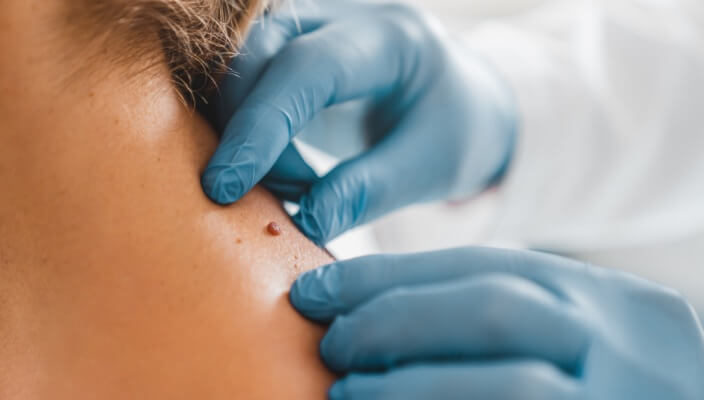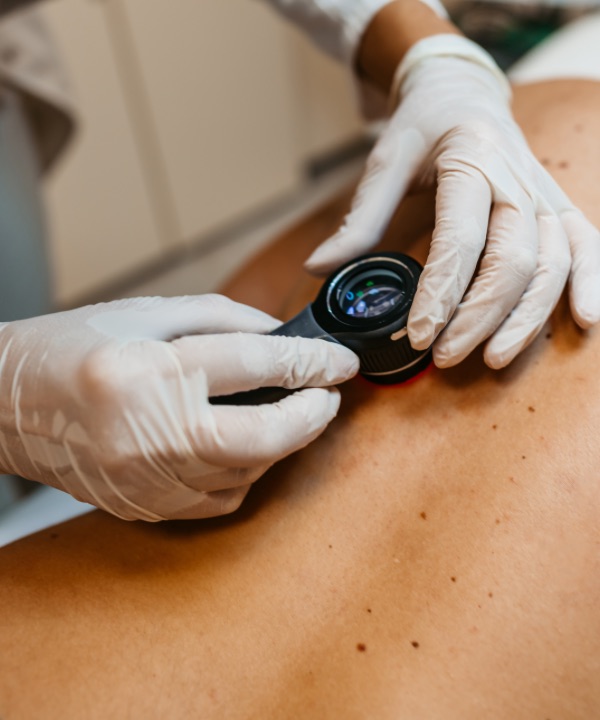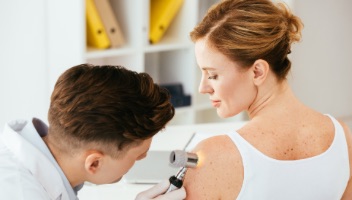Melanoma: The Most Dangerous Skin Cancer
Skin Cancer Cases Are Rising. Reduce Your Risk.
 With skin cancer cases rising year after year, it’s no surprise that people are itching to learn more about this life-threatening skin disease. One question we get quite often is which type of skin cancer is the most dangerous?
With skin cancer cases rising year after year, it’s no surprise that people are itching to learn more about this life-threatening skin disease. One question we get quite often is which type of skin cancer is the most dangerous? In this blog, we’re here to help you better understand the answer and how to reduce your chances of developing the specific type of skin cancer that is most likely to put your health at risk.
Which skin cancer is the most dangerous?
In a nutshell, the answer to this question is melanoma skin cancer. Though melanoma is low on the list of common skin cancers, it is highly invasive when left untreated and has the highest mortality rate out of all the other skin cancer types.
What is melanoma?
Melanoma is a type of cancer originating in the epidermis, otherwise known as the uppermost layer of skin. It develops in the melanocyte cells, which produce melanin to create the brown pigmentation in skin.
When melanocyte cells suffer from unrepaired DNA damage, often due to excessive exposure to ultraviolet (UV) rays, they become mutated and begin to reproduce out of control. This process of rapid cell reproduction is what we call cancer.
Melanoma in its localized form, meaning it has not spread from its original location, has a very high five-year survival: about 99 percent in the U.S.
Understanding the Dangerous of Melanoma
The dangers of this skin cancer significantly increase when it penetrates into the deeper layers of skin and spreads to other areas of the body. This is because the chances of curing a melanoma substantially drop once it spreads, or metastasizes, beyond the original tumor site.
In fact, the five-year survival rate for stage III melanoma is 62 percent and the five-year survival rate for stage IV melanoma is only 18 percent. Stage III melanoma is when it spreads to the lymph nodes and stage III melanoma occurs when it spreads to organs.
Top Treatments for Melanoma
Though melanoma treatments are improving year after year, there is no substitute for early detection. The best way to address melanoma is to stop it in its tracks before it ever has the chance to metastasize.
This is why board-certified dermatologists recommend patients perform monthly self-exams of their skin and schedule annual skin cancer screenings where a trained professional examines their skin for signs of skin cancer.
If skin cancer treatment is necessary, we will often recommend Mohs surgery for melanoma in its early stages. This is a precise technique that allows the surgeon to remove only the cancerous cells, preserving healthy skin.
When melanoma has spread to the lymphatic system or other organs, more comprehensive treatment is required. This often includes several surgeries, immunotherapy, radiation, and chemotherapy, among other forms of treatment.

Schedule Your Skin Cancer Screening at Cumberland Skin
If you are overdue for your next skin cancer screening or have never had one before with a board-certified dermatologist, it’s time to schedule yours today. At Cumberland Skin, we offer comprehensive skin cancer screenings to patients at our state-of-the-art dermatology clinics in Lebanon, Hermitage, Hendersonville, Goodlettsville and Spring Hill, Tennessee.
Featured Sunscreens
Check your local office for current stock!
Check your local office for current stock!
Related Blog Posts

- Skin Cancer
- General Dermatology
- Skin Exams
- Sun Safety
If your dermatologist finds a suspicious mole during your TBSE, hey want to perform a skin biopsy.
Read More
- Skin Cancer
- Sun Safety
Summer safety is more than just putting on sunscreen; many other factors to consider when keeping yourself and your children safe from damage and potential skin cancer.

- Skin Cancer
- Skin Exams
It’s time to face the facts: skin cancer can develop in individuals of all skin colors, including those with darker skin tones.
Read More


